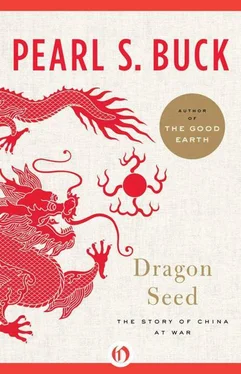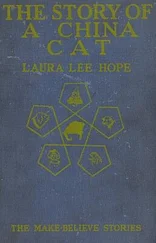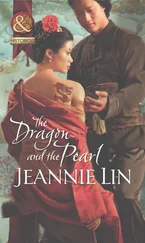Pearl S. Buck
Dragon Seed: The Story of China at War
DRAGON SEED
TO THE CHINESE THE dragon is not an evil creature, but is a god and the friend of men who worship him. He “holds in his power prosperity and peace.” Ruling the waters and the winds, he sends the good rain, and is hence the symbol of fecundity. In the Hsia dynasty two dragons fought a great duel until both disappeared, leaving only a fertile foam from which were born the descendants of the Hsia. Thus the dragons came to be looked upon as the ancestors of a race of heroes.
LING TAN LIFTED HIS head. Over the rice field in which he stood to his knees in water he heard his wife’s high loud voice. Why should the woman call him now in mid-afternoon when it was not time to eat or to sleep? In the further corner of the field his two sons were bending over the water, their two right arms thrusting together like the arms of one man as they planted the rice seedlings.
“Ho!” he shouted. As one man they stood at the sound of their father’s voice.
“Is that your mother?” he inquired.
They listened, two sturdy young men. He felt his belly move with pride at the sight of them. They were both already married, and the eldest, Lao Ta, had two sons, the youngest now only a month old. Lao Er, the second, had been married four months and his wife was beginning to fret. Besides these two, Ling Tan had his youngest son, Lao San, who at this moment was sitting on the water buffalo grazing somewhere on the round grassy foothills along this valley. There were also two daughters in his house, only one of whom was left to be wed. The elder he had given to a merchant’s son in the city whose walls could be clearly seen from behind his house.
At this moment his wife’s voice came too clearly for any mistaking. She bawled at him heartily over the fields.
“You old bone, where are you? You deaf-and-dumb!”
“It is our mother,” Lao Ta exclaimed. All three men grinned at one another, and Ling Tan put into the water the sheaf of rice seedlings he was holding in his left hand.
“It is throwing away money to stop in the middle of the afternoon like this,” he said. “You two, do not stop!”
“Free your heart about that,” his eldest son replied.
The young men bent again to their work and with each swift thrust of their hands into the muddy tepid water they planted a green seedling. Their feet sank into the rich mud under the water, and upon their dark bare backs the sun was warm. Beneath the wide woven bamboo hats upon their heads they talked.
These two sons of Ling Tan’s were good friends and had always been from the moment they could remember themselves. There was less than a year between their births, and they had always told each other everything. Even marriage to two separate women had not separated them. These women they had been discussing when their father called, and to them they returned when he went away. They were still so young, these two men, that their own bodies and what they ate and drank and what came into the day and the night were all stuff for wonder and talk. So far as their thoughts yet went, the world was bounded by the green hills around the valley where their father’s land was, which was to be their land, and the center of the world was the Ling village, wherein all who lived and died were their kin and had been for hundreds of years. Even that great city was only their marketplace. When there was a harvest of grain or vegetable or fruit they went there and sold their harvest, and that was all they knew of the city or cared to know. Since their sister, born just after them, was now married to a small merchant in the city, they sometimes blamed themselves and said they ought to go and see their brother-in-law, but they seldom went. There was enough to busy them on the land.
Under their hats they now talked, without abating one whit of swiftness in the thrust of seedling into mud. Behind them was the watery empty field and in front of them the even rows of green seedlings standing firmly upright.
“Can a man tell when what he plants in a woman takes root?” Lao Er asked his brother.
“It is blind planting,” Lao Ta said, laughing, “and so it must be done over and over again. It is not like this planting we do in the light of the sun. Does she struggle against you?”
“At first, but now never,” Lao Er said.
“Leave her alone for three days and then behave as though it were the fir.st planting,” Lao Ta told his brother. He went on in manner of the elder to the younger. “When a man plants his seed, the soil must be prepared. That is to say, the seed must not be thrown down anyhow. All must be made ready and only when it is ready may the seed be cast. Nor must the seed be scattered as the wind blows weeds. It must be thrust deep into the earth, so — and so — and so—”
Each time that he repeated this word he thrust his bare dark arm down into the wet earth and planted a sturdy seedling.
Lao Er listened to this with all his heart.
“I am an impatient man,” he said, half ashamed.
“Then it is your own fault if you have no son,” his elder brother replied. He threw a sly look at his brother, whom he loved, and his full mouth twisted into a smile. “When you are a year married, you will find the son more important than the mother.”
“But how she frets,” Lao Er said. “Every month when her flux comes she curses it.”
They laughed again, seeing, both of them, the young high-tempered girl who was Lao Er’s wife. The elder brother’s wife was quiet and plump and if she had a temper, she kept it secret. But Lao Er’s wife was like a western wind. Wherever she was she stirred all around her. Lao Er had loved her the moment he saw her.
Lao Ta loved his wife too, but not, he knew, with his whole being. That is, he could delay his going to bed until other and older men had yawned and stretched their muscles and given over their loitering at the tea shop in the village or about the square in front of the small temple. When he came home if his father were still awake he could stand gossiping on the threshing floor in front of the house. There was no haste in the way he loved his wife. She would be there asleep in his bed where she had early lain herself down, and he had only to go to her.
But Lao Er’s wife was restless and full of mischief, and Lao Er never knew where she was until he had her safely beside him. Every evening he was torn between the watchful eyes of the other men, ready to laugh at him if he were the first to break away from them, and the desire in him to know where she was. Jade, he called her, though her full name was longer than that. “Jade!” he called the moment he came into their room. Sometimes she was there and oftener not. He seldom found her twice in the same place in the house or out of the house and never waiting for him in his bed. He longed to know if she loved him, but he had not dared to ask her, lest she laugh at him, she whose laughter, like her anger, was always too ready and too clear. He fell silent, wondering where at this moment she was in the house. In the morning she had come out into the fields and she helped him to plant rice, but after the noon meal she would not come.
“I want to sleep,” she had told him, and threw herself on the bed in their room and went to sleep before his eyes. He longed to lay himself beside her and dared not, because his father would upbraid him for lying with his wife in the daytime, when rice seedlings were waiting to be planted. So he had gone off leaving her sleeping, her high-cheeked little face as pretty as a child’s. But how long did she sleep and then what did she do? He cast a glance at the sun. It was still too high. He sighed, and went on with the planting.
Читать дальше












